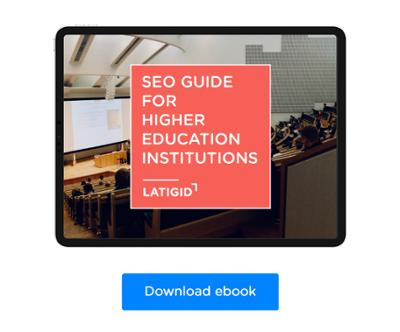
Universities are no longer confined to their local communities when it comes to attracting students. With the power of the internet and advanced technology, educational institutions have the opportunity to expand their reach and connect with prospective students from around the globe. One of the most effective strategies for achieving this ambitious goal is through Search Engine Optimization (SEO). By harnessing the potential of SEO techniques, universities can enhance their online presence, improve visibility in search engine rankings, and ultimately attract a diverse pool of students from different corners of the world.
In this article, we will explore how universities can go from being local institutions to global players by leveraging the power of SEO.
How can a university overcome the barrier from being local to global?
To overcome the barrier from being local to global, universities can implement various strategies:
Develop an internationalization strategy
Universities need to formulate a comprehensive internationalization strategy that outlines their goals, objectives, and action plans for expanding their global reach. This strategy should address areas such as curriculum development, student and faculty mobility, international partnerships, research collaborations, and recruitment of international students.
Enhance online presence and visibility
Establishing a strong online presence is crucial for reaching global audiences. Universities can optimize their websites for international search engines, create multilingual versions of their websites, and develop content that caters specifically to international students. Utilizing social media platforms and digital marketing techniques can also help increase visibility and engage with a global audience.
Cultivate international partnerships
Collaborating with universities and institutions around the world can facilitate knowledge exchange, research collaborations, joint programs, and student/faculty exchanges. By forming strategic partnerships, universities can enhance their reputation and gain access to a wider network of international opportunities.
Tailor academic programs to international students
Universities can review and adapt their academic programs to be more appealing and relevant to international students. This may include offering programs taught in English, incorporating globally focused coursework, providing opportunities for internships or study abroad experiences, and recognizing international qualifications or credits.
Provide comprehensive support services
Supporting international students throughout their educational journey is essential for their success and satisfaction. Universities can offer dedicated support services such as international student orientation, visa and immigration assistance, language support, counseling, and career services tailored to the needs of international students.
Engage in targeted marketing and recruitment
Develop marketing strategies and campaigns specifically designed to attract international students. This may involve participating in international education fairs and exhibitions, organizing recruitment events in different countries, partnering with educational agencies, and leveraging digital marketing channels to reach and engage with prospective international students.
Foster a diverse and inclusive campus culture
Creating an inclusive and diverse campus environment is crucial for attracting and retaining international students. Universities can promote cultural exchange, organize intercultural events, provide opportunities for international students to showcase their culture, and establish support networks or clubs for international students to connect with each other and the local community.
Leverage alumni networks
Engaging with alumni who have pursued successful careers globally can provide valuable insights and support for internationalization efforts. Universities can leverage their global alumni network to create mentorship programs, networking events, and alumni chapters in different countries, fostering a sense of community and enhancing the institution's global presence.
What is SEO and why is it important to reach global audiences?
SEO stands for Search Engine Optimization. It refers to the practice of optimizing a website or web page to improve its visibility and ranking in search engine results pages (SERPs). The goal of SEO is to increase organic (non-paid) traffic to a website by ensuring that it appears prominently in relevant search queries. For universities, SEO is important for reaching global audiences due to the following reasons:
Increased visibility
SEO helps universities to improve their online visibility and reach a wider audience. When potential students or researchers search for relevant information, universities with strong SEO are more likely to appear higher in search engine rankings, increasing their chances of being discovered.
Higher website traffic
By implementing effective SEO strategies, universities can attract more organic traffic to their websites. This means that when people search for specific programs, courses, or information related to a university, they are more likely to visit the university's website if it ranks well in search results.
Targeted audience engagement
SEO allows universities to target specific keywords or search terms that are relevant to their offerings. By optimizing their website content with these keywords, universities can attract visitors who are actively searching for information related to their programs, research, admissions, scholarships, or other offerings.
Improved user experience
SEO involves optimizing various elements of a website, such as site structure, page load speed, mobile responsiveness, and user-friendly navigation. These optimizations not only help search engines understand and rank the website better but also enhance the overall user experience. When visitors have a positive experience on a university's website, they are more likely to engage, explore further, and potentially become applicants or supporters.
Global reach and international student recruitment
SEO enables universities to extend their reach beyond geographical boundaries. By optimizing their website for specific keywords and phrases that are relevant to international students, universities can attract prospective students from different countries. This can significantly enhance the institution's international recruitment efforts and increase its global diversity.
Related article: SEO for Universities: How to Drive More Traffic to your Website
How can SEO help universities reach international students?
By implementing effective SEO strategies tailored to the needs of international students, universities can increase their online visibility, attract targeted traffic, and engage with prospective international students from various regions around the world. SEO can help universities reach international students in several ways:
Targeted keyword optimization
By conducting research on the keywords and search terms commonly used by international students when searching for universities or educational opportunities, universities can optimize their website content accordingly. This includes incorporating relevant keywords in page titles, headings, meta descriptions, and throughout the website's content. This optimization increases the chances of appearing in search engine results when international students conduct related searches, thus attracting them to the university's website.
Localization
SEO allows universities to tailor their website content to different languages and regions. By implementing multilingual versions of their website or creating content specifically targeted to different countries or regions, universities can improve their visibility in international search results. This helps them connect with international students who prefer searching in their native language or location-specific search engines.
International student-focused content
To attract international students, universities can create content that specifically addresses their needs, concerns, and interests. This can include blog posts, articles, or guides on topics such as the admissions process for international students, visa requirements, scholarships, student experiences, or information about specific programs that are popular among international students. Optimizing this content for relevant keywords can ensure it appears in search results when prospective international students are seeking information.
Backlink building
SEO involves building high-quality backlinks, which are links from external websites pointing to the university's website. Universities can collaborate with international partners, educational organizations, or other relevant websites to secure backlinks. These backlinks not only improve the university's SEO but also help increase its visibility among international students who visit those partner websites.
Mobile optimization
Mobile devices are widely used by international students for searching and browsing. Optimizing the university's website for mobile devices ensures that it loads quickly, displays properly, and provides a user-friendly experience for mobile users. Search engines consider mobile friendliness as a ranking factor, and by providing a seamless mobile experience, universities can improve their visibility to international students who use smartphones or tablets for their searches.
Related article: Why Higher Education Institutions Need an SEO Agency to Grow
About Latigid
We are a Higher Education Marketing Agency, specializing in SEO. We help you grow by increasing website traffic, generating more student leads, and closing those leads into enrollment. With a deep understanding of the latest industry trends and best practices, we are well equipped to help your institution grow.
If you are looking for a Higher Education Marketing Agency to partner with, check our page to see what we can do for you!
Download our SEO guide and learn how to build a strategy to optimize your Higher Education Institution's website




